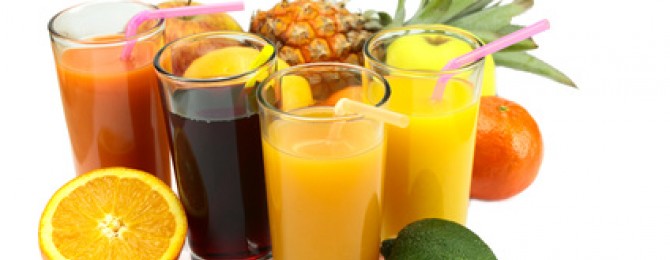Are fruit juices and smoothies the answer for combatting cognitive decline?
Published 28/09/2015
Wouldn’t it be great if we could stave off stress just by drinking a smoothie?
Is all the hype about ‘natural’ products just a marketing ploy or are they really effective?
Could ‘functional beverages’ provide an answer to dementia and Alzheimer’s disease?
Today’s society is faster-paced and more demanding, and as people are living longer, the health problems associated with old age are a growing concern for family and friends. According to the World Health Organisation, 47.5 million people suffer from dementia across the globe, with 7.7 million cases being diagnosed each year. The UK Health and Safety Executive estimates that stress, depression or anxiety represent nearly 40% of cases of work-related illnesses. Treatment and care for these illnesses are costly for the health industry, but is a simpler, more natural solution just a drink away?
According to the research company Canadean there will soon be a rise in demand for ‘functional beverages’ made with products that target cognitive health problems including dementia, depression and anxiety. They contribute to good ‘brain health’, reducing the risk of cognitive decline and combatting symptoms of depression.
“Yeah right,” I hear you say; “it’s just liquid form of antidepressants.”
Not so! The drinks mentioned by Canadean (for example the products by the UK brand Brainwave) are made with natural ingredients including plant extracts and berries and exotic fruits, whose natural properties help combat a variety of illnesses.
For example:
Blueberries contain a high level of antioxidants, vitamins C and K and fibre. They are said to be anti-inflammatory and help reduce symptoms of depression.
Peppermint is a good source of manganese, copper and vitamin C. It also has anti-inflammatory properties which, notably, helps clear the airway, making breathing easier for people suffering with asthma or colds.
Bananas are rich in potassium, a mineral that plays an important role in regulating our blood pressure and heart rate. They help maintain a healthy digestive system and are also good for athletes, since their potassium content may aid recovery and help prevent cramp.
Grapes are also an excellent source of antioxidants, containing a large number of different nutrients such as Stilbenes and Carotenoids. They are also a good source of vitamin K and contain vitamin C, which helps keep us in a good mood.
If these drinks really are effective, they would relieve the economic strain on the health sector and would surely provide a simpler, more natural healthcare solution to cognitive illnesses and as well as other pathologies… And on the plus side, they are very tasty!
But, I hear you ask, what about tea and coffee? Are the world’s most popular beverages good or bad for us?
Keep an eye on our blog to find out…
Last but not least, try it out for yourself! If this article has interested you, why not enter our competition to win a super smoothie maker and a fantastic book of recipes? Create your own smoothies, milk shakes and fruit juices to enjoy at home, on the go or with friends! Click here to find out more.
The Home of Translation
http://www.hse.gov.uk/statistics/causdis/stress/index.htm (accessed September 2015)
http://www.beveragedaily.com/Markets/We-re-targeting-anyone-with-a-brain-Brainwave-on-drink-s-mass-appeal (accessed September 2015)
http://www.canadean.com/news/brain-health-is-the-new-frontier-for-functional-food-and-drink/ (accessed September 2015)
http://www.nutraingredients.com/Markets-and-Trends/Brain-health-drinks-gaining-global-traction-Canadean (accessed September 2015)
http://www.beveragedaily.com/Markets/We-re-targeting-anyone-with-a-brain-Brainwave-on-drink-s-mass-appeal (accessed September 2015)
http://www.who.int/mediacentre/factsheets/fs362/en/ (accessed September 2015)
http://www.whfoods.com/ (accessed September 2015)
Sort articles by region :
Looking for a specific topic? Try here :
